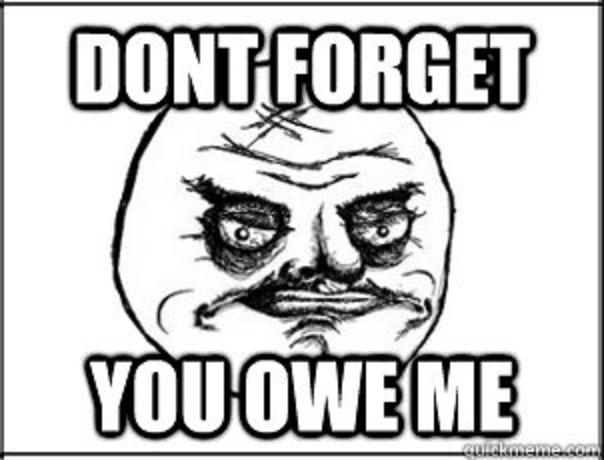In a moral climate as degenerate as ours, weakness has become a virtue. We have come to believe that anyone who is weak must be innocent and the victim of misfortune or prejudice, and is therefore owed compensation. This has led to interest groups scrambling to position themselves as the biggest victim. This essay explains how victimhood is a form of aggression.
Justice is all about setting to rights what people are owed. If someone assaults another person, or steals from them, it’s important that the wider community steps in and sets things to rights. If they don’t, the original victim (or their friends and family) will seek vengeance, which historically has led to blood-feuding, which has frequently led to the destruction of entire areas.
Blood-feuding led to rulers and magistrates enforcing a code of laws – a codified, written set of laws and punishments for anyone who breaks those laws. The advantage of a code of laws is that aggrieved parties appeal to a magistrate for justice instead of taking revenge themselves, which means that grievances tend to settle down instead of festering into blood feuds.
The aggrieved party in any question of justice expects to be compensated. So the giver of justice, in order to keep the peace, tends to pass down rulings that favour the aggrieved. Because of the good nature of other people, it’s usually assumed that any party claiming a grievance must be deserving of compensation, and as a result, the majority of grievances are taken seriously.
The difficulty arises, as it has today, when some people start to realise that a sense of victimhood is highly profitable. A person, or group of people, with a deeply entrenched sense of victimhood can force the society around them to adapt to their wishes. This society does out of a fear of the implied threat of blood-feuding if those grievances are not settled. So artificially stoking a sense of victimhood can bring political power.
New Zealand anarchist philosopher Rick Giles has described this permanent victimhood as Victimhood Culture, one of the four major moral cultures of human history. Giles points out that, no matter how many concessions are given to people in victim mode, it’s never enough. This is because victimhood is an entire culture, a mindset into which people fall and into which they are often raised. It’s characterised by an absence of both honour and dignity.
There are genuine victims, but the proportion of them are ever fewer, and the proportion of grifters and chancers ever higher.
Making out like you’re owed, by exaggerating a sense of victimhood, is an act of aggression. The purpose is to intimidate good-natured people into giving up their wealth or freedom in order to compensate you for the supposed injustice. Because most people have trouble believing that anyone could be as shameless as to pretend to be a victim, most assertions of victimhood are taken at face value.
In reality, the world is an extremely complicated place. There are always a multitude of competing explanations for any political or historical event that might occur or have occurred, or for any sociological phenomenon that may have arisen. Therefore, it’s not always obvious to work out if you have been treated unfairly or not. So whether a person declares that they are a victim or not tells us much about them.
Take the example of the New Zealand Maori. The question of whether they benefitted from colonisation is one that draws a wide variety of responses. The competing explanations are that the British Empire showed up and rescued them from a life of intertribal warfare, slavery and cannibalism (on the one hand), or that they lived in perfect harmony with nature and with each other before the British turned up and corrupted them (on the other), or somewhere in between.
Therefore, it isn’t obvious for individual Maoris to know how much of a sense of victimhood they ought to feel. Inevitably, what ends up happening is that people feel a sense of victimhood that is proportionate to their own level of interpersonal aggression. This is why radicalism and violence go hand-in-hand.
This is true of people in any race, class or religion. If they are naturally aggressive, they will naturally want to take from others, and a sense of victimhood is the perfect justification. All that’s needed is some way of interpreting history so that you or the group you belong to were victimised by some other. Then, that other can be attacked until it pays compensation.
Unfortunately, this means that a sense of victimhood is worth money. If it can be stoked in other people, by suggesting to those people that they are victims and are owed compensation, then this victimhood can be parlayed into cash, jobs and other perks. A person claiming to represent a group of victims can easily siphon wealth into their own pockets. This makes it immensely tempting to stoke victimhood and to aggravate grievances.
The wise thing to do is to be exceptionally wary of anyone, whether an individual or a group, that claims to be a victim. Almost inevitably, this group will have managed to justify aggression against those who they see as oppressors. For this reason, a sense of victimhood, and perpetuating a sense of victimhood, can rightly be seen as a sign of aggression.
*
If you enjoyed reading this essay, you can get a compilation of the Best VJMP Essays and Articles of 2018 from Amazon for Kindle or Amazon for CreateSpace (for international readers), or TradeMe (for Kiwis). A compilation of the Best VJMP Essays and Articles of 2017 is also available.


